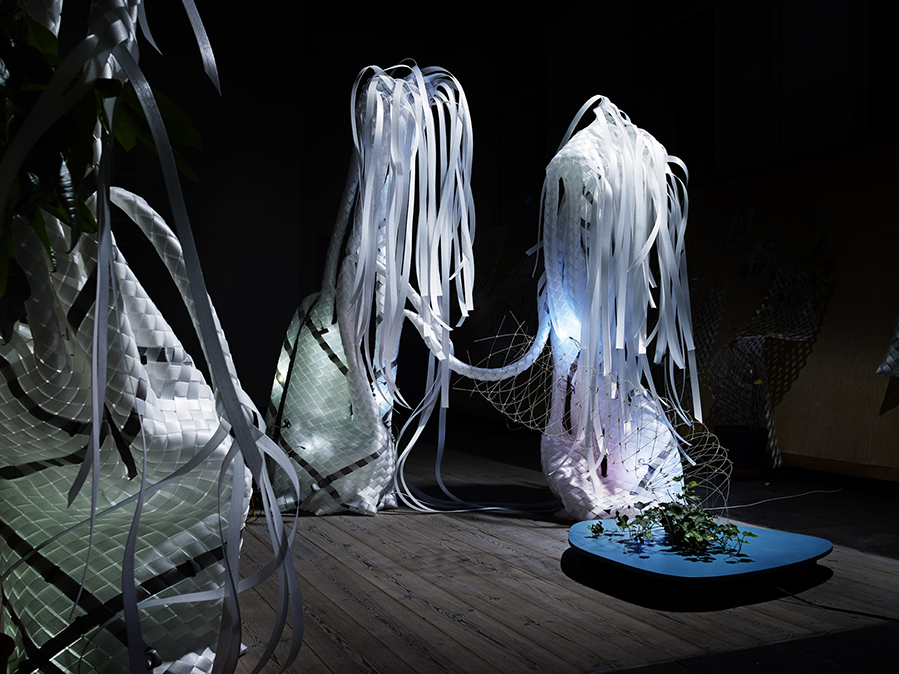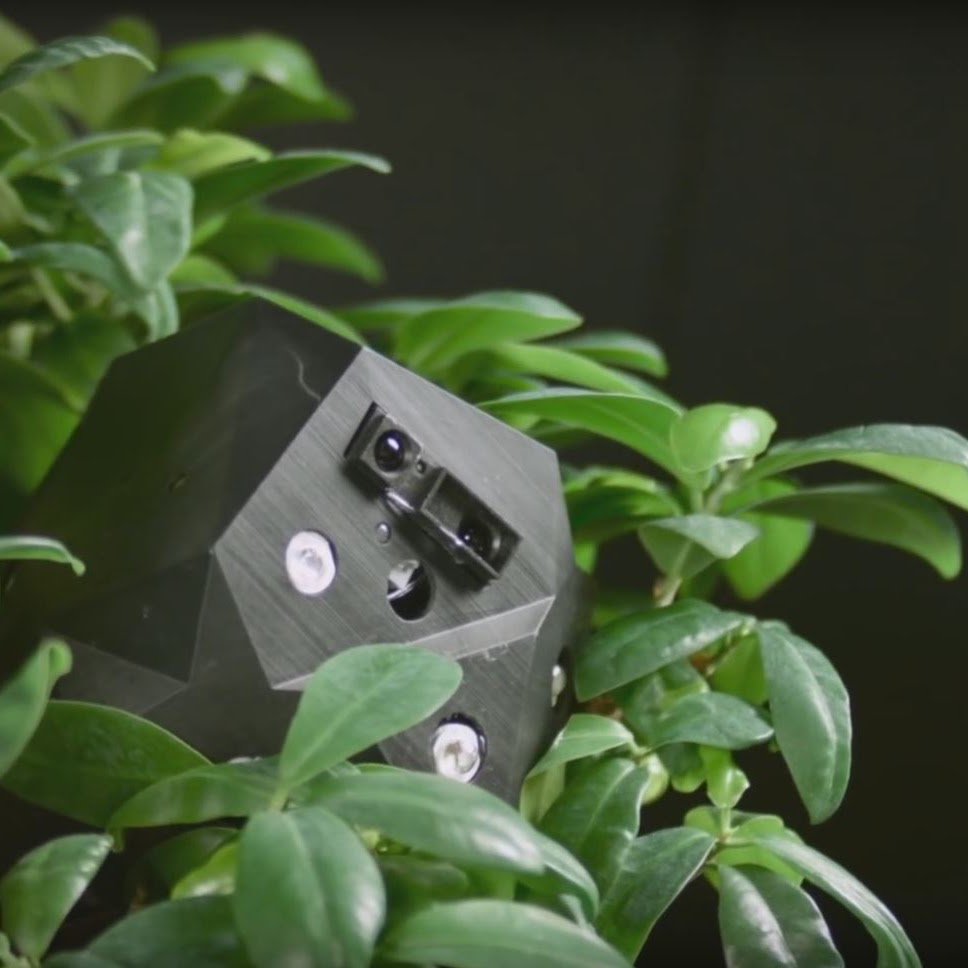FloraRobotica:
Societies of Symbiotic Robot-Plant
Bio-Hybrids as Social Architectural Artifacts
information from the official web site floraRobotica
The project’s objective is to develop and investigate closely linked symbiotic relationships between robots and natural plants and to explore the potentials of a plant-robot society able to produce architectural artifacts and living spaces. flora robotica responds to the work-programme theme ‘Knowing, doing and being: cognition beyond problem solving’, the goal of which is to establish new foundations for future robotics and other artificial cognitive systems with clear progress beyond current capabilities and design concepts.
The project assembles a highly cross disciplinary team drawn from the fields of Computer Science, Robotics, Molecular and Cellular Biology, Zoology, Advanced Mechatronics & Environmental Sensing and Architecture.
The artificial plants are built from small heterogeneous sensing and actuation modules connected using lightweight construction elements. Each robotic plant connects wirelessly to the Internet. In contrast to top-down control, we explore a developmental plasticity of bio-hybrid systems, where robots and plants grow together from sprout to adult stage and form a closely co-dependent and self-organized system. The robot-plant organisms live in a human-inhabited environment and through interaction with humans grow into architectural structures (e.g., walls, roofs, benches) providing functionality such as shade, air quality control and stress relief.
Humans, plants, and robots form an internet-connected social garden where desired structures and behaviour patterns emerge based on both local interactions and global interactions with parts of the garden growing at other locations. Hence, the social garden is a cultural system that shows long-term learning and adaptation where all past actions and interactions between the natural and artificial plants are represented in the embodiment of the garden.
Flora robotica is funded under the EU-Horizon 2020 Future and Emerging Technologies Proactive Action. Grant agreement ID: 640959


